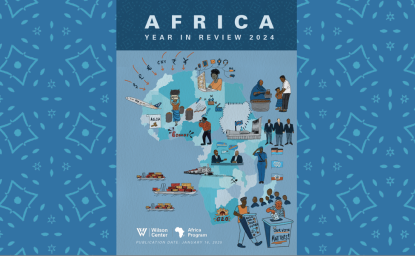M
ozambique needs governance that better reflects its citizens’ interests. Otherwise, the resource-rich country will suffer continued turmoil and violence. The United States, with its considerable investments in the region, is likewise challenged in Mozambique.
National and provincial elections in October 2024 were marred by government fraud and intimidation, sparking deadly civil unrest. Winning 71% of the presidential vote, the Frelimo party kept the power it has held since Mozambique’s 1975 independence. Frelimo’s win was predictable, as the country’s last election was also widely recognized as manipulated.
Unpredicted, however, was the emergence of Venâncio Mondlane and his Podemos party as the leading opposition force, far outpolling Frelimo’s traditional party foe, Renamo. Mondlane’s campaign was fueled by disillusioned, social media-connected youth who view Frelimo as corrupt and Renamo as co-opted. Many other Mozambicans feel disenfranchised, with voter turnout reported to be only 43.5%.
Similarly, disillusionment and disenfranchisement contribute to ongoing violence in Cabo Delgado and other northern provinces. A deadly Islamist insurgency, begun in 2017, has successfully recruited to its ranks by playing to the sentiment that natural resources are being developed in exploitative ways without providing local benefits. While the Frelimo government speaks of serving local interests, it is seen as complicit in corrupt business dealings, which gives the insurgency oxygen.
For years, Mozambique was not a priority of Washington’s Africa policy. It is today. The United States’ financial commitments in the country have increased significantly. The Development Finance Corporation and the Export-Import Bank have recently committed billions of dollars to projects in Mozambique. Bilateral aid exceeded $550 million in 2023, and the Millennium Challenge Corporation signed a $500 million compact with Mozambique the same year. Additionally, the United States has focused on encouraging more representative government. In 2022, Mozambique was selected to receive focused, sustained attention and aid through the Global Fragility Act.
One effort within the Global Fragility Act framework was support for Mozambican civil society to press for free and fair elections. Yet the muted US response toward this year’s manipulated elections undercut these efforts and risked appearing hypocritical by Mozambicans wanting democracy.
In South Africa’s election last May, the African National Congress, a liberation party like Frelimo, accepted its first defeat and negotiated a unity government with its political opposition, giving the country new hope. Frelimo, in contrast, shows little inclination toward national reconciliation, making Mozambique increasingly fragile and testing US policy.
Tough times demand tough questions. Going forward, the United States needs to examine the situation and its priorities in Mozambique to understand: is the United States capable of supporting more inclusive governance that is essential to long-term stability in Mozambique? Is democracy a US priority? Has the US commitment to the country handcuffed it in helping those Mozambicans peacefully seeking representation?
Author

Africa Program
The Africa Program works to address the most critical issues facing Africa and US-Africa relations, build mutually beneficial US-Africa relations, and enhance knowledge and understanding about Africa in the United States. The Program achieves its mission through in-depth research and analyses, public discussion, working groups, and briefings that bring together policymakers, practitioners, and subject matter experts to analyze and offer practical options for tackling key challenges in Africa and in US-Africa relations. Read more




